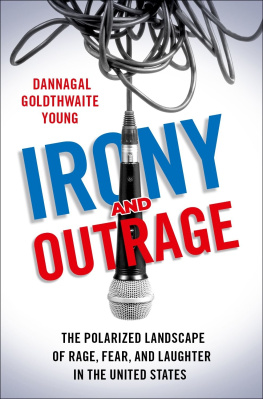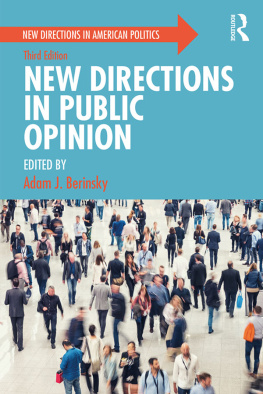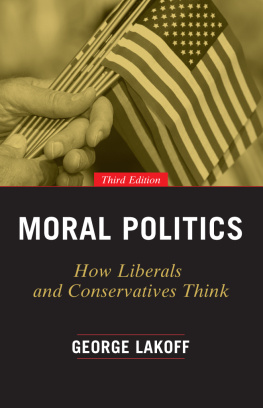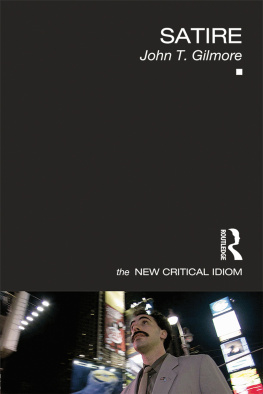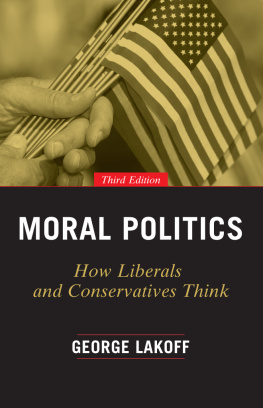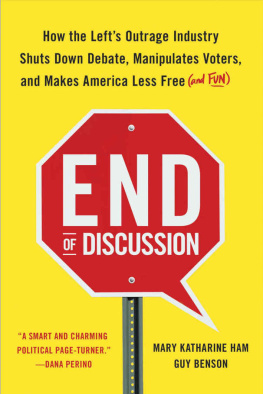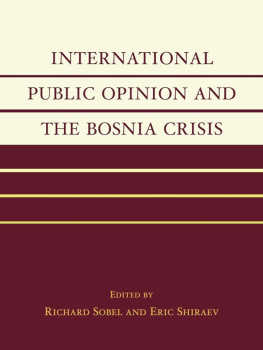Irony and Outrage

Oxford University Press is a department of the University of Oxford. It furthers the Universitys objective of excellence in research, scholarship, and education by publishing worldwide. Oxford is a registered trade mark of Oxford University Press in the UK and certain other countries.
Published in the United States of America by Oxford University Press
198 Madison Avenue, New York, NY 10016, United States of America.
Oxford University Press 2020
All rights reserved. No part of this publication may be reproduced, stored in a retrieval system, or transmitted, in any form or by any means, without the prior permission in writing of Oxford University Press, or as expressly permitted by law, by license, or under terms agreed with the appropriate reproduction rights organization. Inquiries concerning reproduction outside the scope of the above should be sent to the Rights Department, Oxford University Press, at the address above.
You must not circulate this work in any other form and you must impose this same condition on any acquirer.
Library of Congress Cataloging-in-Publication Data
Names: Young, Dannagal G., author.
Title: Irony and outrage : the polarized landscape of rage, fear, and laughter in the United States / Dannagal Goldthwaite Young.
Description: New York, NY, United States of America : Oxford University Press, [2020] | Includes bibliographical references and index.
Identifiers: LCCN 2019006859 (print) | LCCN 2019980569 (ebook) | ISBN 9780190913083 (hardcover : acid-free paper) | ISBN 9780190913106 (ebook) | ISBN 9780190913090 (pdf)
Subjects: LCSH: Mass mediaPolitical aspectsUnited States. | Mass media and public opinionUnited States. | Television talk showsPolitical aspectsUnited States. | Radio talk showsPolitical aspectsUnited States. | Television in politicsUnited States. | Radio in politicsUnited States. | Right and left (Political science)United States. | Political cultureUnited States. | Political satire, American.
Classification: LCC P95.82.U6 Y68 2020 (print) | LCC P95.82.U6 (ebook) | DDC 810.9/93581dc23
LC record available at https://lccn.loc.gov/2019006859
LC ebook record available at https://lccn.loc.gov/2019980569
9 8 7 6 5 4 3 2 1
Printed by Sheridan Books, Inc., United States of America
For Mike Young, whose infinite tolerance for ambiguity taught me to be comfortable in the not-knowing.
For Michelle Kennedy, whose high need for closure taught me to stop thinking and just do something goddammit.
Contents
countless friends and mentors made me feel that this project was worth pursuing and that I was the person to do it: Regina Lawrence, whose tireless mentoring and praise of my ideas convinced me that I know what Im talking about; Sarah Sobieraj, who thinks and talks and brainstorms like an improviser in the best of all possible ways: yes anding, building on offers to help you complete the sceneand the book. Michael Delli Carpini, who was excited about this idea from the start, and generously read a very early first draft, offering suggestions of where to tighten up the narrative. Lance Holbert, who has always been a champion of me and my work, even back when there wasnt very much work to be a champion of. My supportive colleagues and friends at the University of Delaware, with whom Ive discussed these ideas (way too much) over the years; especially Scott Caplan, Lindsay Hoffman, Jenny Lambe, Paul Brewer, Steve Mortensen, Lydia Timmins, Tracey Holden, Phil Jones, Joanne Miller, Dave Redlawsk, Nancy Signorielli, John Courtright, Betsy Perse, and Kami Silk. My mentors from the Annenberg School for Communication at the University of Pennsylvania, including MXD, Joe Cappella, and Kathleen Hall Jamieson (who gave me invaluable publishing advice) and the brilliant Annenberg crew of the early 2000s, who inspire me every day: especially Kate Kenski, Jenny Stromer-Galley, Matt Carlson, Brooke Duffy, Jeff Gottfried, Talia Stroud, Scott Stroud, and Tresa Undem. The extraordinary women of political communication and political science (#womenalsoknowstuff), who are at once friends and colleagues: Amber Boydstun, Shannon McGregor, Katie Searles, and Jess Feezell.
For their generosity in taking the time to be interviewed, I would like to extend my heartfelt gratitude to The Committees Alan Myerson, Ed Greenberg, and Latifah Taormina, comedy writer David Misch, documentary filmmaker Sam Shaw, and comedian Frank Lesser. Thank you especially to Full Frontals Ashley Black for entertaining these heady questions while still actively working on a popular political satire show in real time, and to Barry Lank for revisiting his memories of Air America to help fill out the picture of the early days there.
The thoughtful and generous Andy Chadwick introduced me to his editor, Oxfords Angela Chnapko. From the start, Angela made it clear that she shared the vision for this book and helped me see it through. Angela, thank you for believing in this project from our very first conversation! And to my copyeditor, Martha Ramsey: I would like to have you by my side every day to edit my every word.
Funding for some of the experimental work cited in the book came from two General University Research Grants awarded by the University of Delaware and from the University of Delawares Center for Political Communication. Funding for books and travel to conduct interviews was provided by the National Institute for Civil Discourse at the University of Arizona.
I could not have begun to craft this line of argumentation without the formative work of other scholars and social psychologists, especially the contributions of Jeffrey Berry and Sarah Sobieraj, Nicole Hemmer, Alison Dagnes, John Jost, Jeffrey Jones, Geoff Baym, and Jonathan Haidt.
I should note that my approach is rooted almost exclusively in observations drawn in the context of American media and American electoral politics. The mechanism I propose in the book is rooted in underlying psychological, physiological, and likely even genetic predispositions. As highlighted by my non-American colleagues (Thank you, Cristian Vaccari!), if these underlying mechanisms operate as I propose, scholars should find these patterns in other cultural and geographic contexts as well. My hope is that my colleagues in political psychology, political communication, and humor studies from around the globe will be intrigued by (or reflexively opposed to) the propositions I advance here. I look forward to their explorations of these underlying theoretical mechanisms across diverse samples in various cultural contexts.
Without the experimentation and play of my favorite satirists, I would never have asked these questions in the first place. Thank you especially to Jon Stewart and Stephen Colbert. In 2000, while getting my masters at the University of Pennsylvania, I worked for 10 days as a production assistant for The Daily Show while they covered the Republican National Convention in Philadelphia (photo Ack.). When I mentioned that I was deciding whether to continue toward the Ph.D. or move to New York to do improv, Stephen described the rampant rejection and uncertainty that fill the life of a young aspiring comic. He told me that if he had the chance to get a Ph.D. from Penn studying something he loved, he would take it. So I did. Ive been studying the psychology of satire ever since.

